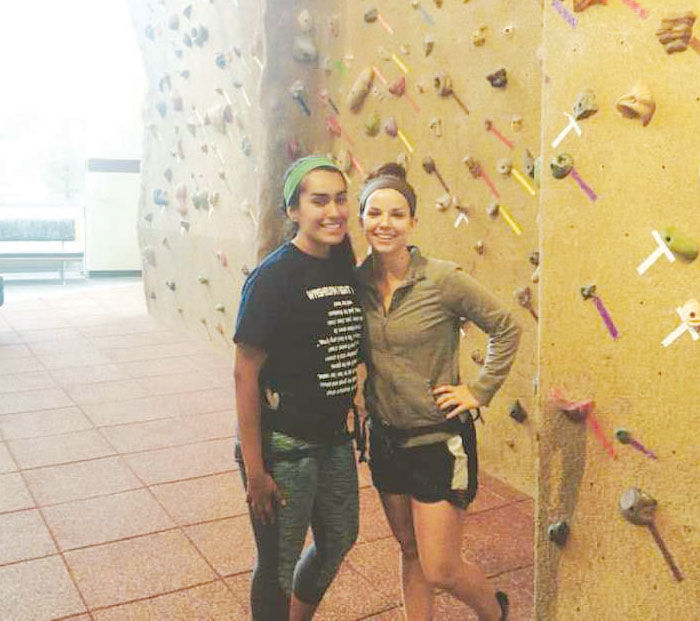Student workers foster lively fitness
May 1, 2016
Money is often something that college students are in short supply of, which leads them to search for methods of income to accommodate their school lifestyle. This prompts many to look into on-campus jobs.
At Washburn University there is an array of on-campus jobs. The largest campus employer is the Student Recreation and Wellness Center, which employs between 45 to 60 student workers every semester.
The SRWC pushes for new recruits after spring enrollment for the following fall semester. Applicants are required to complete a general application and paper interview. The finalists partake in a phone or in-person interview coordinated by the SRWC staff.
“During our spring/summer hiring push, we normally see 100-125 applications, and depending on the number of staff we plan on hiring, we will conduct anywhere from 35-60 interviews,” said John Cummings, SRWC associate director.
Cummings said positions range from fitness loft monitor to front desk monitor to office assistant. In addition, students have the option to be promoted to facility supervisors. This opportunity involves another interviewing process, which means it’s not an automatic promotion based on seniority.
Kasey Paez, junior social work major, started working at the SRWC in fall 2014. After two semesters, she was promoted to facility supervisor. She noted that the transition into supervisory status was easier than she expected.
“The professional staff are all super friendly, and they were easy to approach if I ever had a question or needed help completing a task,” Paez said.
The professional staff determines the schedules at the beginning of the semester, and then employees have the opportunity to ask off, pick up or trade shifts as needed. There is a 20 hour cap per week, and Cummings said some students work as many as 15 to 18 hours a week while others only work four to six hours.
Student workers have the opportunity to gain additional hours by serving as group exercise instructors, Rock Wall monitors and intramural officials.
Being an on-campus job, student workers at entry-level positions are paid $7.25 per hour with the possibility of merit raises each year. Group exercise instructors and intramural officials have a starting pay of $7.50.
Emma Showalter, freshman biology major, and Rachel Hoover, junior athletic training major, are both members of the intramural staff and serve as officials. Their tasks include scorekeeping and refereeing games.
“I have been able to network more with the intramural staff because it’s much smaller in size, and they are a very fun group of people to hang with,” Hoover said.
Emma Showalter, freshman biology major, started working at the rec right when she started at Washburn University in fall 2015. It was the on-campus employers at summer orientation who convinced her it’d be a great place to practice skills that would be applicable to her post-college career.
“I’ve had practice effectively confronting people. I’ve learned how to make confident decisions on the spot and hold a conversation with a complete stranger,” Showalter said.
While students don’t receive any traditional benefits at the SRWC, the benefits they do receive come in the form of experience, training and knowledge in the co-curricular realm.
“We give our student employees a structured framework in which to perform their job duties, while also providing an atmosphere to promote critical thinking and problem solving within each individual,” Cummings said.
The thing that some student workers enjoy about the SRWC is the environment. They have become close with co-workers and have grown accustomed to the regular visitors.
Ellen Glasgow, junior psychology major, wishes she had started working at the rec her freshman year instead of waiting until she was a junior. She claims she would’ve been able to make friends much earlier due to the assortment of people she socializes with during shifts.
Even though the SRWC has a surplus of student workers, not all are guaranteed to stay for multiple years. Cummings said the main reason students leave is because the demands of their academic course loads make it difficult to continue their employment. However, he enjoys watching the students grow during their time with the SRWC.
“Many go from first-year students who are excited to begin their college career with little idea of what lays ahead to thoughtful and educated young adults who are ready to embark on the remainder of their life journey,” Cummings said.




